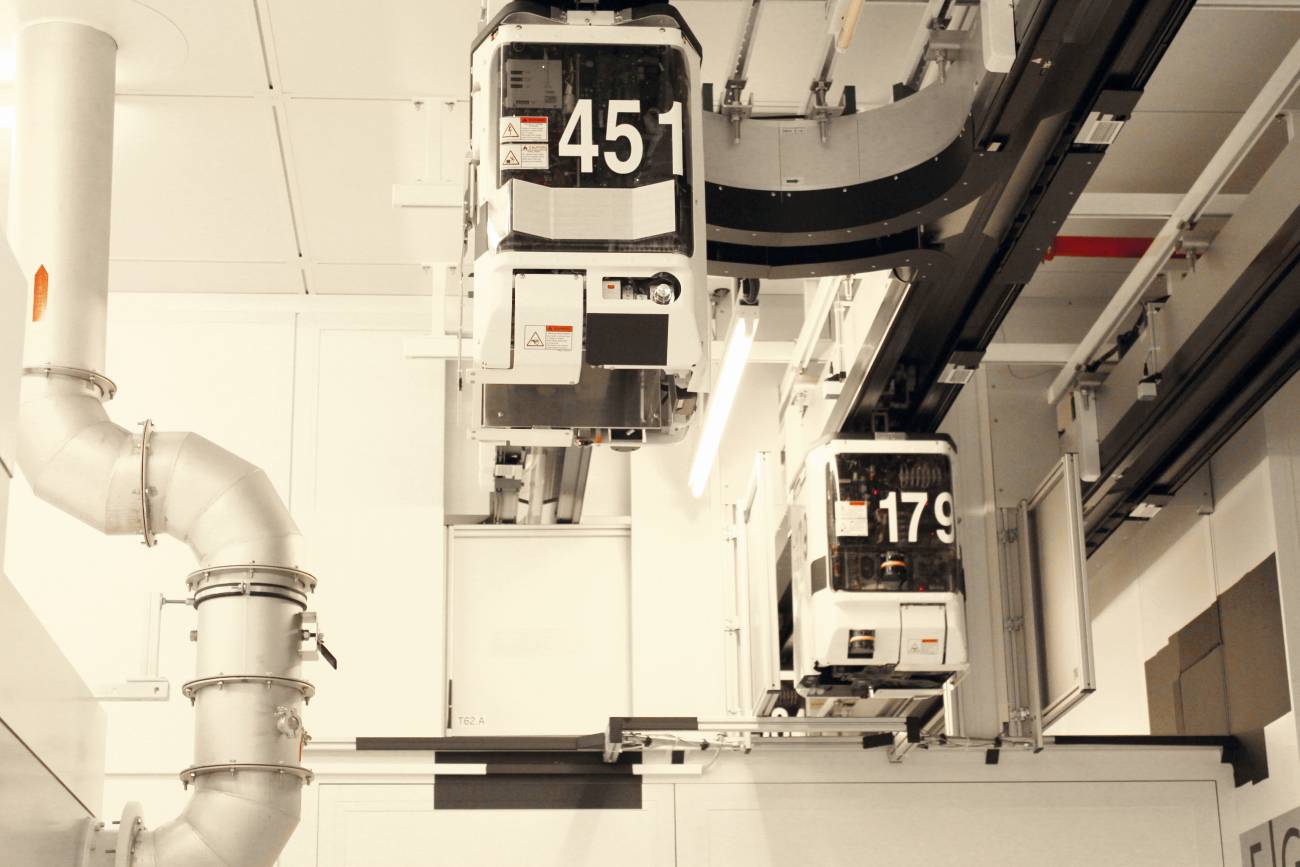While attempts to attract potentially billions of euros elsewhere have failed, Saxony has once again shown that where ecosystems, subsidies and experience come together, the European Chip Act can certainly make a difference. While TSMC is still building its factory in the north of Dresden, this decision by the Taiwanese and Infineon's new factory have triggered a further surge in investment and relocations. Meanwhile, the Saxons are preparing their next coups in Asia.
According to our information, the Free State is already negotiating quite concretely with a Taiwanese company that wants to settle in Dresden in the wake of the major TSMC investment. It is still unclear which company is involved - but it is likely to be a technology company that already has relations with TSMC in Taiwan.
It is interesting to note in this context that the Saxon Minister of Economic Affairs, Dirk Panter (SPD), recently traveled to 'Semicon Taiwan' and also visited the electronics equipment contract manufacturer 'Foxconn' on the fringes of the event. It is reasonable to assume that he was there to promote the company's establishment in Saxony. If this succeeds, it would be a big step forward for 'Silicon Saxony': since the Treuhand (trust agency) wound up the GDR computer combine 'Robotron' after reunification and the successor companies also ceased PC production, there is no longer a major computer manufacturer in the Free State. If Foxconn bites, the large corporation could close a gap in Saxony's electronics value chain by setting up shop here.
"The Free State is becoming increasingly well-known in Taiwan because it is clear that we are Europe's number one in microelectronics."
Saxony's Minister of Economic Affairs Dirk Panter
Following his trip to Taiwan, Minister Panter explained: "Overall, we have noticed that Saxony is perceived as a top player in the strategically important field of the semiconductor industry." Panter defended the state subsidies for the industry: "Semiconductors are a very capital-intensive business," he explained. On the other hand, however, "the semiconductor industry is absolutely strategically important for the future". And: "As we still have some catching up to do in Europe, we need to invest money now in order to assert ourselves in global competition."
 Minister of Economic Affairs Dirk Panter (4th from right) and Chief Economic Development Officer Thomas Horn (3rd from left) on a promotional tour in Taiwan; Image: SMWA
Minister of Economic Affairs Dirk Panter (4th from right) and Chief Economic Development Officer Thomas Horn (3rd from left) on a promotional tour in Taiwan; Image: SMWA
Murata and Insecotec invest in Dresden
There is hardly any doubt in the Saxon state capital that the billions in aid from the federal and state governments - and ultimately the local authorities - will help Dresden: after 'Sachsen-Kälte', 'Exyte' and other expansion decisions at the site in the wake of the TSMC fab being built, the next wave of new companies is already emerging: The Japanese chip factory automation company 'Murata' from Kyoto is now building its first European training center and a customer support office for €7 million not far from the growing chip factory campus. Right next door, Murata's partner 'Insecotec' is also building its new company headquarters for €4.5 million.
"Murata Machinery's decision is another strong signal for the sustained dynamism of the semiconductor industry in the Dresden region," commented Frank Bösenberg from the industry association 'Silicon Saxony' on these plans. Above all, the arrival of Murata is a "groundbreaking milestone for the further development of our cluster" and strengthens the entire European semiconductor ecosystem.
 Murata is the market leader for such automatic ceiling transport systems for wafer boxes in chip factories - here a view of the Globalfoundries fab in Dresden; image: Karin Raths, Globalfoundries
Murata is the market leader for such automatic ceiling transport systems for wafer boxes in chip factories - here a view of the Globalfoundries fab in Dresden; image: Karin Raths, Globalfoundries
Air Liquide invests another quarter of a billion in Dresden
Air Liquide (AL) is also expanding its presence in 'Silicon Saxony' and has now invested a further quarter of a billion euros in Dresden. Specifically, the company is building three air separation plants, two hydrogen production plants and the associated infrastructure. AL will then also operate these plants. The units provide high-purity nitrogen, oxygen, argon, hydrogen, helium and CO2 for the microelectronics companies.
"This investment also strengthens our leading position in 'Silicon Saxony' and at the same time contributes to Europe's technological sovereignty," emphasized Emilie Mouren-Renouard from AL. The company had previously expanded its branch in Ottendorf-Okrilla, north of Dresden, in smaller steps. However, it is also becoming increasingly clear that Dresden alone will not be able to expand its position as the leading microelectronics metropolis in Europe indefinitely: On the one hand, there are hardly any larger areas for large factories à la Foxconn in the urban area, which is why many microelectronics suppliers such as Air Liquide are also settling in the Dresden region. On the other hand, the Saxons are trying - so far with varying degrees of success - to close the gaps in the semiconductor value chain that have emerged since the fall of communism in 1989/90: This refers to chip design, backend and the production of electronic end products. Some locations in Germany are already well advanced in this area - so Saxony is increasingly relying on supra-regional cooperation.
Dresden and Munich are planning a joint chip design center
One example of this is Munich: Apple has established its European chip design center in the Bavarian capital. And TSMC also wants to concentrate its 'European Design Center' (EUDC) in Bavaria. In this context, microelectronics researchers from Saxony and Bavaria want to establish a joint chip design center with the Competence Center Chip Design (CCCD). The Barkhausen Institute Dresden, TU Munich, Fraunhofer, companies from 'Silicon Saxony' and the federal project "Chipdesign Germany" are involved. The partners are hoping for federal funding: "By joining forces and using our complementary strengths, we in Saxony and Bavaria want to help Europe gain technological sovereignty and geopolitical stature."
Dresden plans vocational training in English due to chip boom
Meanwhile, Saxony is intensifying its efforts to organize sufficient skilled workers for the growth of the chip cluster. One example is the new €136 million vocational training center of excellence for microelectronics, which is to be built in Dresden's prefabricated housing district of Prohlis. Although school construction is actually a municipal task, in this case the Free State and the EU are financing the majority of the sum. "With the construction of the new vocational school center for electrical engineering, we are investing directly in the training of young talent and at the same time strengthening Saxony as a microelectronics location," explains Saxony's Minister President Michael Kretschmer (CDU). "In this way, we are making Silicon Saxony even more future-proof."
Dresden is planning further innovations in this context. For example, the microelectronics school will also offer vocational training for mechatronics engineers in English. "This is a unique offer in Germany," emphasizes Saxony's Minister of Education Conrad Clemens (CDU). At the same time, Dresden is also significantly expanding international teaching at state schools. In addition, the Dresden International School (DIS) is currently expanding its school campus in the city center. "In addition to skilled workers from Saxony, the labor market must increasingly be enriched by skilled workers from all over Germany, but also from abroad," argues Dresden's Education Mayor Jan Donhauser (CDU). "For foreign skilled workers, excellent educational opportunities are a significant factor in their decision to take up employment in Dresden."
Dresden becomes German pilot city for the EU's digital wallet
 With the EU's new digital ID wallet 'Eudi Wallet', EU citizens will be able to identify themselves anywhere via smartphone. Dresden becomes a pilot city in GermanyMeanwhile,researchers, engineers and developers in "Silicon Saxony" are also driving forward other innovations beyond microelectronics. For example, the Saxon state capital is already the first German pilot municipality for the new Europe-wide digital ID wallet 'Eudi Wallet'. "Dresdeners and their guests will be able to use the new wallet from 2026," explained Michael Breidung, head of the city's own information technology (IT) company, when asked. This makes Dresden the pioneer for a central EU digitalization project. The wallet is designed as an app for smartphones.
With the EU's new digital ID wallet 'Eudi Wallet', EU citizens will be able to identify themselves anywhere via smartphone. Dresden becomes a pilot city in GermanyMeanwhile,researchers, engineers and developers in "Silicon Saxony" are also driving forward other innovations beyond microelectronics. For example, the Saxon state capital is already the first German pilot municipality for the new Europe-wide digital ID wallet 'Eudi Wallet'. "Dresdeners and their guests will be able to use the new wallet from 2026," explained Michael Breidung, head of the city's own information technology (IT) company, when asked. This makes Dresden the pioneer for a central EU digitalization project. The wallet is designed as an app for smartphones.
According to Breidung, the first digital ID cards to be tested by the city in the EU wallet will include the Dresden Pass, the volunteer pass, the "Dresden Welcome Cards" for tourists, the ID card and driving license. "In future, it will also be possible to store other ID cards and official notifications in it. He sees many advantages for individual users, the administration and companies from the Eudi Wallet: new ID cards, passports and notifications, for example, will no longer have to be collected in paper form from the citizens' office or other authorities on site, but can be automatically and immediately imported into the digital wallet after the official decision has been made.
There is also a very fundamental argument: the ID cards in the digital wallet can be used for clear electronic identification, for example on Internet portals, in communication with authorities or for purchases and legal acts in the online world. It only ever reveals as much information as the user really wants or is absolutely necessary for the specific action online. "We are giving citizens back the sovereignty over their identification management that the large hyperscalers from the USA have had up to now."





